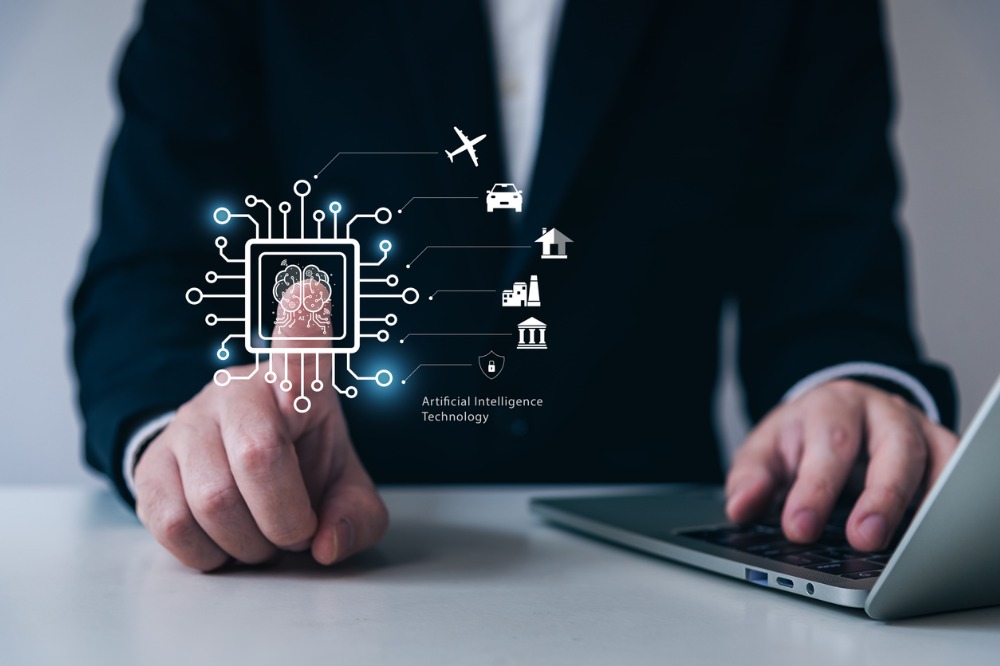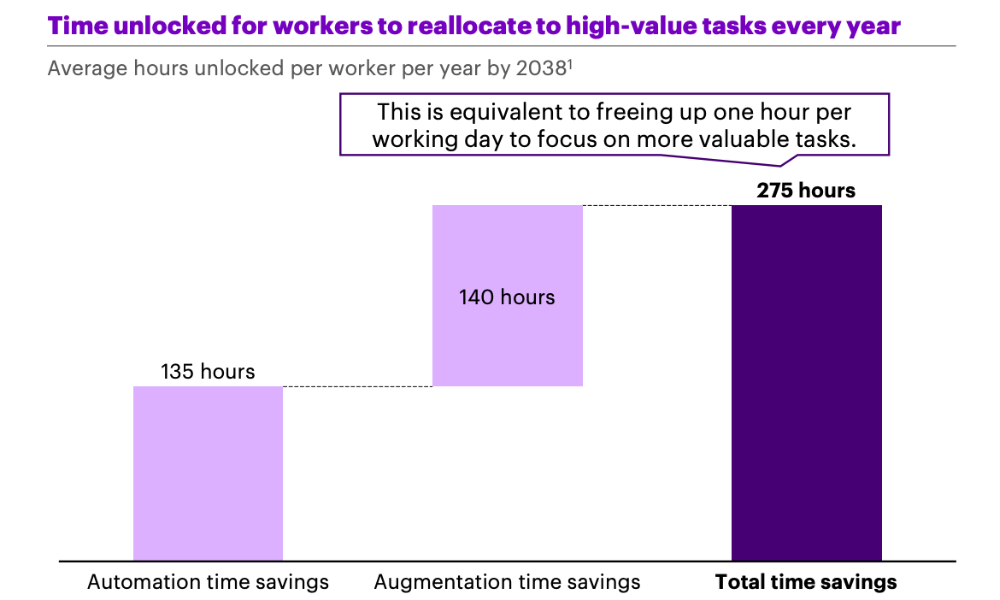
New report suggests adopting generative AI at work could 'take our whole economy to the next level,' says expert

Employees across New Zealand are expected to save an average of 275 hours per year thanks to the positive gains from generative AI, according to a new report from Microsoft.
The report, which analysed than 19,000 tasks performed across 400 occupations, found that 38% of tasks will be impacted by Gen AI. This includes 24% of tasks that could be augmented by GenAI, and another 14% that could be automated by the technology.
"This means the average worker in New Zealand could free up 275 hours each year to reinvest into higher value activities," the report reads.
Freeing up this significant number of working hours annually could boost worker productivity by 15.5% by 2038, according to the report, as the time saved could be reinvested into "complex and important" tasks.
"With higher productivity, organisations in New Zealand would have the potential to increase output, even when operating with limited resources."

Source: New Zealand's Generative AI Opportunity
Meanwhile, the report said these gains from generative AI could potentially add $76 billion to the country's GDP by 2038.
"This means that GDP would be 15% larger relative to the baseline forecast of NZ$495B, an increase equivalent to twice the size of the construction industry," the report read. "Productivity and GDP growth rates are expected to almost double with adoption of Generative AI."
Vanessa Sorenson, managing director of Microsoft New Zealand, said the report highlights an opportunity to gain from GenAI outside of cost reduction.
"We can't just be looking at generative AI as an opportunity to save money – it's our chance to do more than we ever dreamed was possible, experiment, and take risks, to take our whole economy to the next level," Sorenson said in a statement.
But maximising the economic gains from GenAI will ultimately depend on the scale, speed, and approach to adopting generative AI in workplaces, according to the report.
It will also rely on how workers are supported to adapt to new ways of working.
Microsoft's Work Trend Index has already ranked New Zealand employees as the third-fastest adopters of generative AI tools across the world. Its digital infrastructure is also about to receive a boost with the opening of Microsoft's hyperscale cloud region in 2024.
However, the 2022 Productivity Commission has pointed out the that low foreign investment, low levels of international trade, lack of technical and leadership skills, and AI regulation can hinder the economic gains from Gen AI.
According to Microsoft, unless a strategic approach is taken, the potential gains to New Zealand's GDP could be halved to $39 million.
"As a global leader in AI technologies, we know we have a role to play in giving people the courage to innovate, and we’re investing and working with our partners to boost skills and understanding. But the more of us who work together, the higher we can reach. This report shows exactly we could achieve if we think big and act fast," Sorenson said.